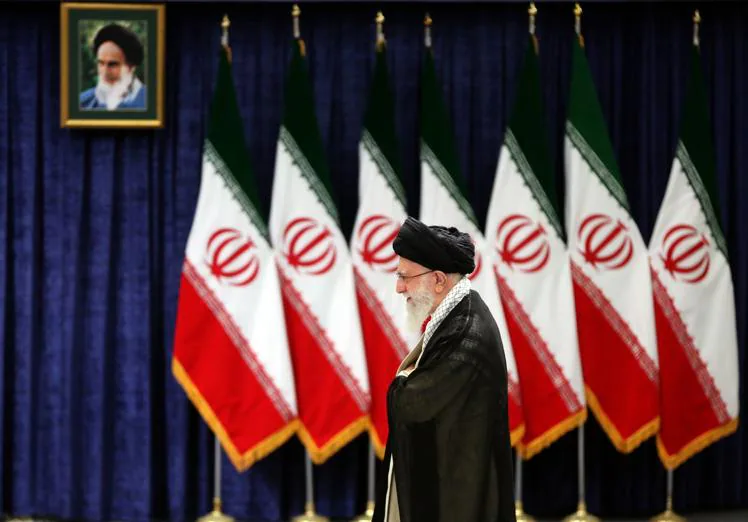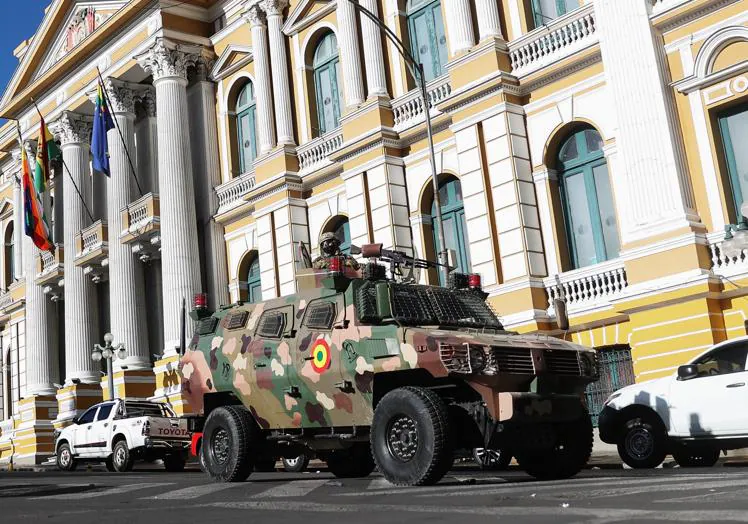Wednesday, July 3, 2024, 10:51
When we think of international conflicts over raw materials, we often think of wars and invasions for control of oil or gas. More recently, we have also thought of geopolitical disputes over lithium or rare earths, key elements for new technologies. However, there is one natural resource that is becoming increasingly important around the world: water.
Whether it is a lack or an excess of water, exacerbated by climate change, its control is vital. And nowhere is this more evident than in the Himalayas, the cradle of the great Asian rivers. It also happens along the Mekong, or in the Amazon. Above all, due to the construction of dams upstream, which end up affecting the flow downstream: during periods of drought, because some water is stored and the rest is not reached; and when the rain does not stop, because they can open the locks and increase the damage of the floods on the way to the sea.
Today, we are focusing on the latest controversy in this regard, the one caused by the Grand Renaissance Dam that Ethiopia has been building on the Nile since 2011, and whose impact Egypt has warned could even provoke an armed response.
These are the three topics we will address today:
-
A barrier on the Nile shakes Africa.
-
By force or by ballot, everything trembles.
-
Choose a president: a zombie or a psychopathic liar.
-
-kNZF-U2101197893384bqD-80x80@RC.png)
Water control
A barrier on the Nile shakes Africa
States have sovereignty over the resources within their territory. But their exploitation can affect other countries. And this is most evident along rivers. Water is an increasingly coveted natural resource, both for its vital importance in agriculture and for its use as a generator of energy. But its control in a situation dominated by extreme weather events is becoming increasingly complicated. Dams facilitate both: retaining water and regulating increasingly unpredictable flows.
There are around 35,000 of them in the world, with the majority of those currently being built in developing countries. One of the largest is the Grand Ethiopian Renaissance Dam (GERD), which began construction in 2011 and had not yet reached its maximum reservoir capacity until September last year. At almost two kilometres long, it occupies an area as large as the London metropolitan area, and with locks up to 145 metres high, it is the largest hydroelectric project on the continent. If forecasts are met, it will double the country’s electricity generation, allowing it to supply electricity to 60% of the population that currently does not have access to electricity – more than 70 million people – and sell part of it to neighbouring countries.
The GERD in one of the first stages of filling the reservoir.
DPA
The problem is that the area where the GERD has been built is also the one that concentrates 85% of the flow of the Nile River, which then flows through Sudan to flow into Egypt. And there they fear that water levels there will fall to the point of jeopardizing cotton production and even human supplies, especially if Ethiopia stocks up during periods of drought. That is why Egypt has already officially protested, stressing that a 2% reduction in the flow of the Nile could cause the disappearance of more than 800 square kilometers of irrigable land.
The International Crisis Group warned a few years ago that this conflict could escalate into military territory, something Egypt has not ruled out either. Cairo claims that the agreements reached in the region in 1929 and 1959 already made clear the water quotas for each country, as well as giving Egypt veto power over upstream projects, but Ethiopia does not recognise them. Even the United States has intervened with the threat of suspending its humanitarian aid to Addis Ababa, but all negotiations in the last decade have failed.
In Ethiopia, the milestone of the dam is being celebrated.
Reuters
The issue is particularly interesting because it could become one of the first such conflicts, which threaten to multiply in the future. China and India, for example, often raise tensions in the Himalayas over control of the waters of the Roof of the World, and something similar happens with the Asian giant and its neighbours on the Mekong in Southeast Asia. Unfortunately, these projects can end up erupting into serious climatic clashes.
-
Elections and coups
By force or by ballot, everything trembles
We knew that 2024 was going to be a tumultuous year around the world, because it is the year in which the largest number of elections in history will be held. And, so far, it is not disappointing. Both due to the technocratic movements that occur at the polls, and those that occur outside them. The most recent of the first type occurred last Sunday in France, where next Sunday the population will have to ratify or rectify the turn towards the far right.
Whether or not Le Pen’s party emerges victorious, there is one clear loser: Emmanuel Macron, who is on track to repeat David Cameron’s failure when he decided to put Brexit to a referendum in the belief that the British would decide to stay. The French president has opened the door to the far right, which now sees an opportunity it did not expect so soon.

Marine Le Pen and Jordan Bardella celebrate Sunday’s victory.
AFP
The contradiction is that some elements of the extreme left who claim to defend democratic values go out shortly after the vote to destroy Paris to stop the extreme right, something they should do at the polls. They often point out that extreme right parties lead to dictatorships and movements like those of Franco or Hitler, forgetting that the extreme left gave birth to Stalin or Mao. To avoid both, there are elections and intelligent and moderate political proposals.
Of course, there are also elections that are a farce. The one held in Iran last week, for example, is not far away. Following the death of Ebrahim Raisi in a helicopter crash, Iranians had to choose a new president from among the reformist and conservative candidates. Neither of them managed to get 50% of the vote, although Masoud Pezeshkian, from the former group, received the most votes. He will face the conservative Saeed Jalili on Friday.

Ali Khamenei, in front of a portrait of Ali Khamenei.
EFE
A victory for the reformist could bring about some social changes. Pezeshkian has made it very clear that he is against “imposing faith by force,” which can be interpreted as a criticism of the morality police and their violence against unveiled women. He is also a major defender of democratic values. However, whoever wins will always be subject to the will of the Supreme Leader, Ali Khamenei. And that, in the end, is like ruling with one’s arms tied.

Military coup plotters in Bolivia.
EFE
But it is certainly better than doing it by force, as the military under General Juan José Zúñiga tried to do in Bolivia. Regardless of the fact that many believe that it was all a prearranged show, it is clear that coups d’état are becoming a popular measure, especially among African and Asian military personnel, to gain power. So those who do not find comfort in Europe do not want to.
-
-kNZF-U220604161078LCC-80x80@RC.png)
The most humiliating debate
Choose a president: a zombie or a psychopathic liar
And if we have to talk about elections, we cannot ignore the presidential debate organized by CNN between the still unofficial candidates Donald Trump and Joe Biden. Although I am sure that by now you are fed up with analyses of the president’s deplorable state and the lies of the former president, it is impossible to overemphasize the example of decadence that the face-to-face represented. And how the Democrats are now facing a difficult time saving themselves.
-kNZF--748x524@RC.png)
What a panorama!
The main Anglo-Saxon media have recommended that Biden abandon the race for re-election and retire. He really needs it. But finding a convincing replacement over the summer is an impossible mission. Firstly, because facing an unscrupulous rival like Trump cannot be a pleasant experience for anyone. Secondly, because even going through that ordeal does not promise a victory. So, if no surprises remedy it – it seems incredible that two parties like the Republicans and the Democrats do not find more suitable profiles among 330 million people – Americans will have to choose a president between a zombie and a psychopathic liar. And the rest of the world will suffer the consequences.
That’s all for today. I hope I’ve given you a good idea of what’s going on out there. If you’re subscribed, you’ll receive this newsletter every Wednesday in your email. And, if you like it, it will be very helpful if you share it and recommend it to your friends.
#giant #dam #set #fire #North #Africa #Diario #Vasco
